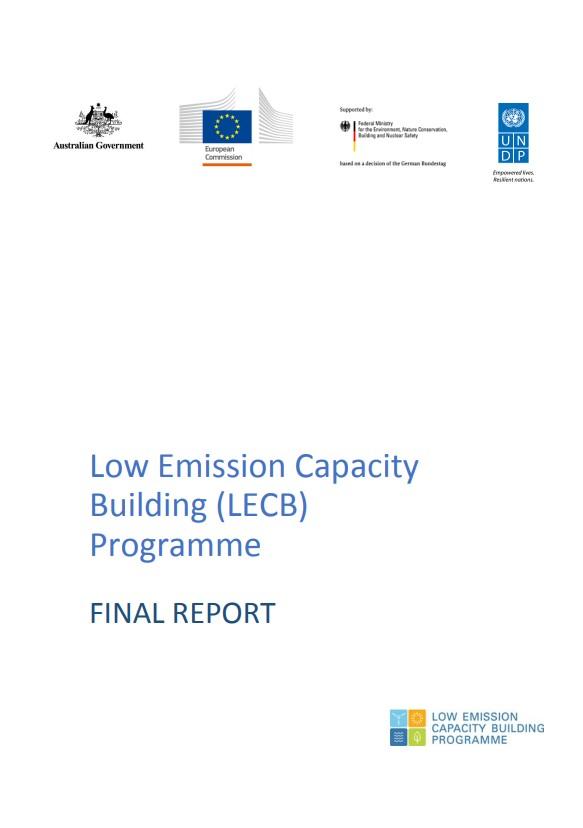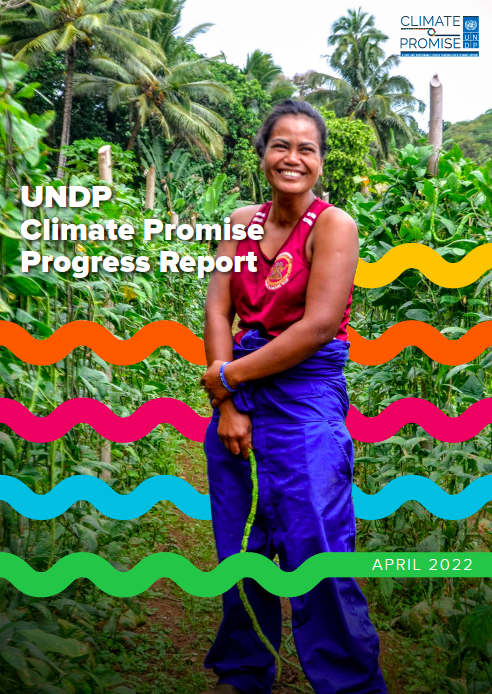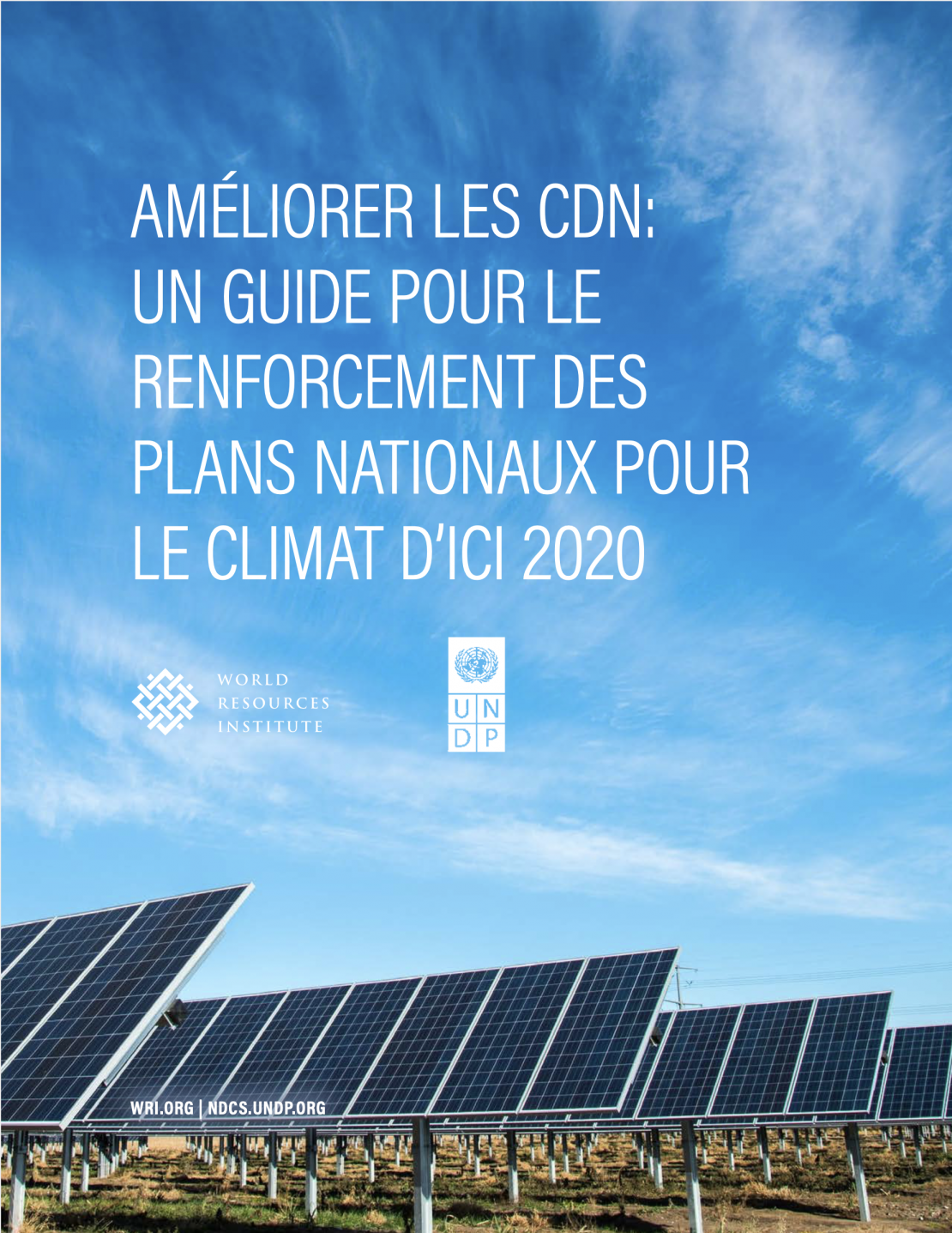LECB Programme Final Report

The Low Emission Capacity Building (LECB) Programme was a joint initiative between the European Commission (EC), governments of Germany and Australia, and the United Nations Development Programme (UNDP). It was implemented by UNDP. The overarching objective of the LECB Programme was to create awareness and build capacity in the public and private sectors in developing countries on how to pursue a low carbon pathway as basis for economic development. The LECB Programme was launched in January 2011 (EU (co)funded Action start date: 16 December 2010) and finalised by the end of 2018 after being extended two years.
The LECB Programme fulfilled its overall objective and increased the capacity in public and private sector to address mitigation challenges in general and to strengthen GHG inventories; develop LEDS and NAMAs; and develop systems to measure, report and verify climate data. Through its flexible and country-led approach it succeeded in many countries to establish real buy-in to the need for GHG emission reductions and apply tools for low emission development. Although certain standard approaches and actions were introduced, the flexible approach also gave space for the achievement of unexpected national outcomes, which were in line with the countries’ current policies and priorities. This increased the support to the LECB Programme and the active participation by public and private sector institutions. Therefore, the LECB Programme contributed to laying the ground work for the elaboration of the INDCs and later the awareness raising and implementation planning for Nationally Determined Contributions (NDCs).
The LECB Programme was expanded several times with increasing budgets and task and the management structure permitted adjustments to the increasing challenges in a way that sustained complex and customised processes in 38 countries so that the national projects with its activities were implemented. These results were achieved through a wide range of capacity building actions, elaboration of knowledge products and varied technical support, which was to a large extent customised to specific country demands.


